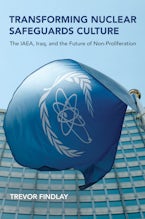Analysis of the security challenges presented by six states in the crucible of post-9/11 geopolitical change: Saudi Arabia, Syria, Iraq, Iran, Afghanistan, and Pakistan.
The Epicenter of Crisis argues that six contiguous states epitomize the security challenges of a post-9/11, globalized, world: Saudi Arabia, Syria, Iraq, Iran, Afghanistan, and Pakistan. Characterized by a dramatically transforming Islam, ethnic conflict, civil war, failed states, and terrorism, this “new Middle East” is the epicenter of what some call an arc of crisis, stretching from the Balkans into Southeast Asia. The Epicenter of Crisis examines this geopolitically dynamic region, analyzing the changing role of Islam in these six critical countries, the dangers posed by potential failed states, and the evolving terrorist threat.
The contributors, all specialists in Middle East or foreign policy, address such crucial issues as the relationship between the Saudi royal family and Al Quaeda, Syria's waning influence over Hizbollah, media coverage of the war in Iraq, a new U.S. strategy for dealing with Iran, Afghanistan's opium industry, and the effectiveness of U.S. multi-billion-dollar assistance to Pakistan. The Epicenter of Crisis challenges readers to reconceptualize the boundaries of the Middle East in a changed world.
Contributors
John R. Bradley, Rachel Bronson, Daniel Byman, Derek Chollet, Craig Cohen, Larry Diamond, Emile El-Hokayem, Vanda Felbab-Brown, Brian Fishman, Graham E. Fuller, Husain Haqqani, Elliot Hen-Tov, Jorrit Kamminga, Nina Kamp, Alexander T. J. Lennon, Michael McFaul, Abbas Milani, C. Raja Mohan, Michael O'Hanlon, Gwenn Okruhlik, Carlos Pascual, Kenneth M. Pollack, Dennis Ross, Karim Sadjadpour, Ashley Tellis, Peter van Ham, Eyal Zisser












